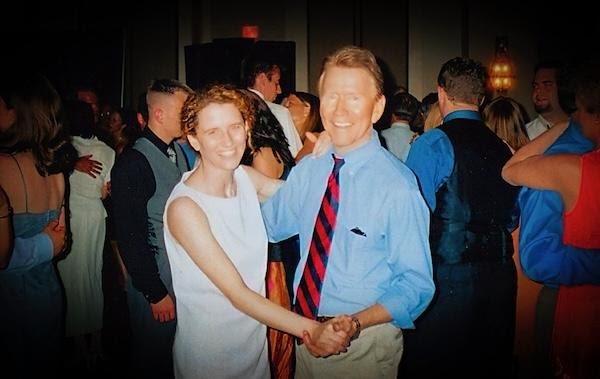Losing my father was one of the most profound moments of my life, and it taught me lessons I couldn’t have learned any other way. While I provide estate planning for families in New York every day, I realized firsthand how powerful — and necessary — planning really is.
This blog is for parents, professionals, and families who want to protect their loved ones and ensure that when the inevitable happens, they’re not left scrambling. If you’ve been putting off estate planning because it feels overwhelming or unnecessary, I hope these lessons will show you how much peace of mind it can bring.
Below are the five biggest lessons I learned about planning — both practical and emotional — after losing my father.
1. Why clear legal documents are the greatest gift you can leave behind
The most stressful part of losing a loved one often isn’t the grief — it’s the confusion over what needs to be done. In my father’s case, his paperwork was complete, organized, and easy to access. This allowed my family to spend those final days focusing on him, not on scrambling to find legal documents or make tough decisions.
At The Village Law Firm, we’ve seen families struggle when wills, healthcare proxies, or guardianship plans are missing or incomplete. It can cause delays, unnecessary legal costs, and conflict during an already painful time. Make sure your key documents are not only in place but that your loved ones know where to find them.
2. How personal letters can bring peace and clarity
When my father was still healthy, he wrote letters to his loved ones. During his final days, struggling through pain, he read the letter to me and my siblings aloud — it was one of the most meaningful moments of my life.
Legal documents handle logistics, but personal letters provide heart and meaning. They can explain why you’ve made certain decisions, share memories, or offer guidance to future generations. Consider pairing your estate plan with a heartfelt letter for your children or spouse. It’s something we often encourage clients to include alongside their will or trust.
3. Why planning your obituary and funeral isn’t morbid — it’s kind
It may sound unusual, but writing your own obituary or planning your funeral is a tremendous kindness to your family. My father had left specific notes about the kind of service he wanted, including the music he loved. We followed his wishes — and even added bagpipes — knowing it was exactly what he wanted.
For many New Yorkers, these instructions are left in a disposition of remains document or even noted in a will. Others keep a simple list with their estate planning papers. Whatever you choose, it ensures your loved ones don’t have to guess or debate when emotions are high.
4. Long-term care planning protects your legacy
Even though my father remained independent until his final months, there was a brief period where we considered hiring a personal aide. The costs were staggering. In New York, long-term care can quickly deplete savings, leaving less for your children or other beneficiaries.
Proactive planning, such as Medicaid strategies or establishing a trust, can protect your assets and ensure you receive the care you need. If you’re unsure how to start, you can learn more in our blog on how Medicaid changes impact long-term care planning in New York.
5. Life is short — spend time with those who matter
Above all, my father’s passing was a reminder that life is fleeting. Even the healthiest person can be gone in a matter of weeks, or even hours. Estate planning isn’t just about documents — it’s about creating the space and peace of mind to focus on what truly matters: spending time with the people you love.
Whether you’re updating guardianship arrangements for your children or creating a living trust, remember that these steps are ultimately about love and connection.
FAQs
1. What’s the most common estate planning mistake families make?
The biggest mistake is waiting too long. Many families assume they have time, but sudden illness or accidents can leave loved ones unprepared. Not having clear documents like a will, healthcare proxy, or guardianship plan is one of the hardest situations we see.
2. How often should New York families review their estate plans?
We recommend reviewing your estate plan every 3–5 years or after major life events like marriage, divorce, or having a child. Laws and tax rules also change, so periodic updates are key.
3. What’s included in a complete estate plan?
A complete plan typically includes a will, trust (if needed), power of attorney, healthcare proxy, and guardianship provisions for minor children. It may also include letters of intent and instructions for funeral or memorial arrangements.
Ready to start your own estate planning journey?
At The Village Law Firm, we help families create plans that provide clarity, protection, and peace of mind. Schedule a Legal Planning Sessions today and take the first step toward securing your family’s future.





